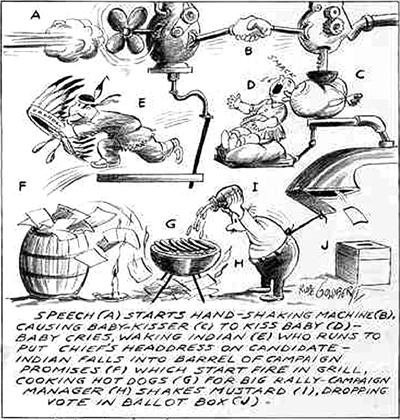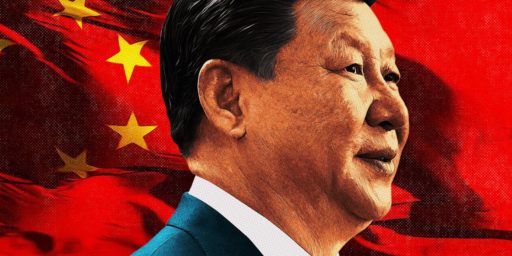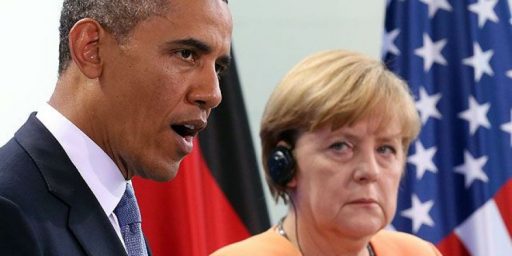The System Is the Cause of Systemic Failure
To save the world economy and themselves Germany and China must change course.
I want to direct your attention to a post by prominent authority on Chinese economics Michael Pettis. It’s so carefully constructed that it’s difficult to excerpt but I’ll do my best to give you its flavor:
Over the past two years we have become pretty used to the spectacle of Chinese government officials warning the US about its responsibility to maintain the value of the huge amount of US treasury bonds the PBoC has accumulated. More recently we have been hearing complaints in Germany about the possibility that defaults in peripheral Europe will lead to losses among the many German banks that hold Greek, Portuguese, Irish, Spanish and other European government obligations.
In both cases (and many others) there seems to be an aggrieved sense on the part of creditors that after providing so much helpful funding to undisciplined debtors, the creditors are going to be left with losses. There is, they claim, something terribly unfair about the whole thing.
To me this whole argument is pretty surreal. Not only have the creditors totally mixed up the causality of the process, and confused discretionary foreign lending with domestic employment policies, but an erosion in the value of the liabilities owed to them is an almost certain consequence of their own continuing domestic policies. It is largely policies in the creditor countries, in other words, that will determine whether or not the value of those obligations must erode in real terms.
I urge you to read it in full.
The linchpin of Germany and China’s mercantilist economic strategies is that in order for the strategy to work China needs to buy U. S. dollar assets and German banks needs to fund peripheral European debt. Were the U. S. or the PIIGS to consume less, as the Chinese and German authorities have been demanding, it would hurt China and Germany. To mitigate the overall damage to the world economy it is China and Germany’s strategies that must change if only for their own self-preservation. Both countries must consume more and export less.
This is why I find the moaning and gnashing of teeth over the possible erosion of the value of claims accumulated by surplus countries surreal. There is only one possible way to avoid that erosion of value, and that requires that the surplus countries work with the deficit countries to reverse the trade imbalances. If the surplus countries refuse to take the necessary steps, an erosion in the value of those claims is the automatic and necessary consequence. In practice that means that either the claims must be devalued or they will lead to default.
The picture above is a drawing of one of his far-fetched contraptions by the famous cartoonist Rube Goldberg. How else would you illustrate a complicated and harebrained system?







Yeah, I will certainly read the article, but my take is that the Chinese Machine seems to work this way:
A) China fiddles with its currency to help promote Chinese exports
(The fiddling helps China, not so much the US)
B) China exports to the US, which the US pays for in dollars
(Low-cost Chinese imports drive US jobs to China)
C) China accumulates a lot of US dollars, a whole lot of US dollars
D) China uses its accumulated US dollars to purchase US bonds
(Thus continuing to fuel the consumer-driven US economy)
E) The US economy continues to purchase low-cost Chinese goods
F) The continued US purchase of low-cost Chinese goods only reinforces the
Chinese will to fiddle with its currency to help promote Chinese exports.
G) Return to A.
Let’s not forget: both of these countries voluntarily bought this debt. There’s an unsurprising inability to concede that an issuance of debt is a bilateral contract that two parties enter into upon more or less mutually agreeable terms. Of course, China and Germany know that if they just completely stopped buying foreign debt, it would decrease the value of the paper they currently hold. Good article.
A refreshingly frank blog posting, that provides a commonsense depiction of economic reality.
David Ricardo, often credited with systematizing economics, developed the concept of comparative advantage, the win-win-win pot of gold at the end of the free trade rainbow. As a system thinker Ricardo recognized that destroyers of free trade would cause the results of free trade to be less than the sum of the parts; short-circuiting optimal comparative advantage.
In the global area, Adam Smith’s self-interest capitalism manifests itself in surplus countries’ unbridled pursuit of absolute advantage, which encompasses keeping deficit country currencies from falling with the aim of protecting the surplus countries portfolio of monetary reserves and obtaining an ever increasing share of the free trade pie. David Ricardo, applying systems thinking, appears to have realized that the unbridled pursuit of absolute advantage would be unsustainable and end badly; with the pursuit of comparative advantage as the only commonsensical and sustainable approach.
Warren Buffett, also applying systems thinking, in 2003 recommended a balance trade model, as a 21st century avocation for the pursuit of comparative advantage. Balanced trade would result in negligible trade surpluses/deficits as does optimal comparative advantage; therein lies its unique ability to provide sustainability.
It’s a pretty good article. The one quibble I’d have is that I pay pretty good attention to US-Chinese communications, and I don’t recall them asking the US to raise it’s savings rate.
They mainly want to keep their Yuan down, and to be paid for the bonds they own.
They are riding a tiger with rapid development, and trying to stay on.
This is dateline 2009:
US Personal Savings Rate rises; Asian countries led by China and Japan forced to reassess over-dependence on exports
Many of us would probably agree that our savings rate has been too low, but like China trying to correct low domestic consumption, it’s not something that is healthy to fix in the blink of an eye. Increased savings means lower consumption of both domestic and imported goods.
And this is why the Euro will fail and the US dollar will continue to depreciate, because the changes to avoid either outcome simply do not have political support.
The title of this post:
“Trade Imbalances Lead to Debt Imbalances” or Why Mercantilist Nations Shouldn’t Beef About Their “Profligate” Customers:
misses a very important point from Pettis’ article — You shouldn’t call it “Mercantilist” — You should call it “Imperialist.” Mercantilism was a primitive, ill-defined economic doctrine intended to encourage the accumulation of specie. Imperialism was about the venting of excess savings.
If you don’t understand the distinction, read the article that Pettis cited, “Communist China’s capitalism, the highest state of capitalist imperialism” here:
http://www.world-economics-journal.com/Contents/ArticleOverview.aspx?ID=455
(You can accept the free one-week trial subscription to download for free.)